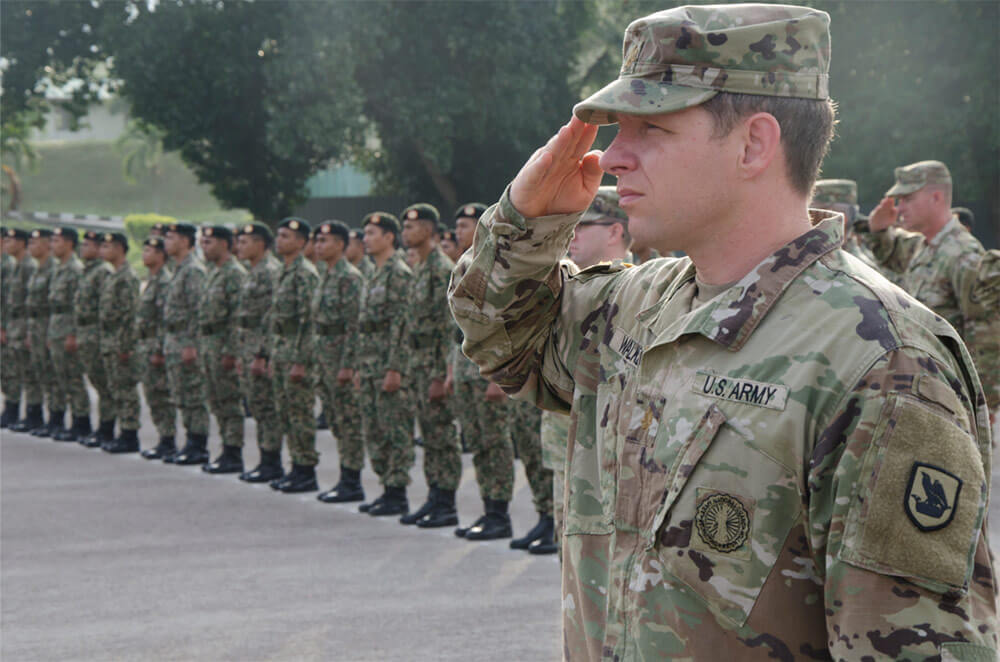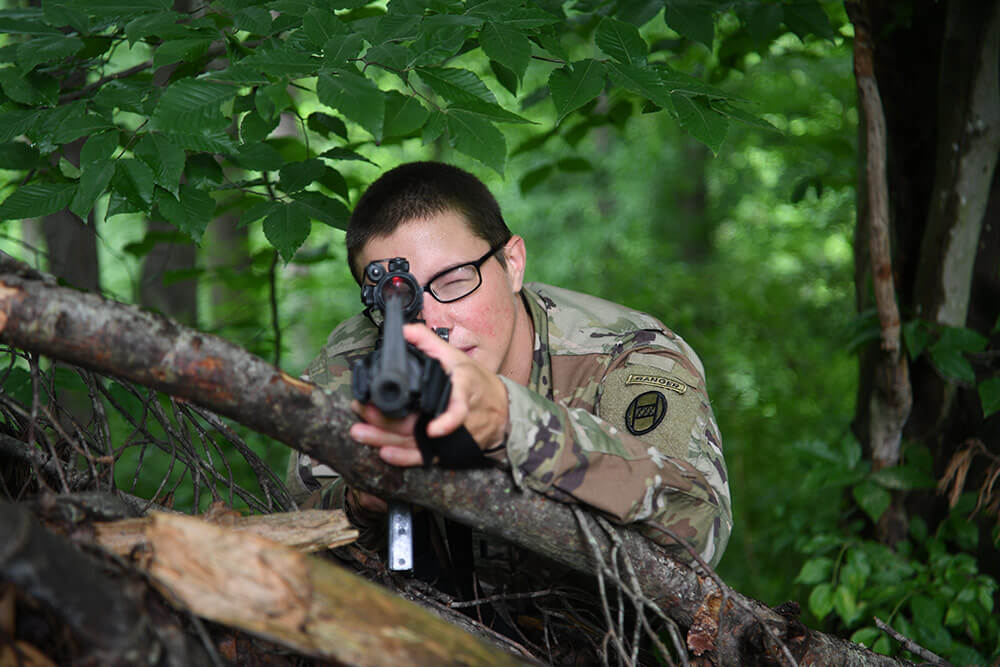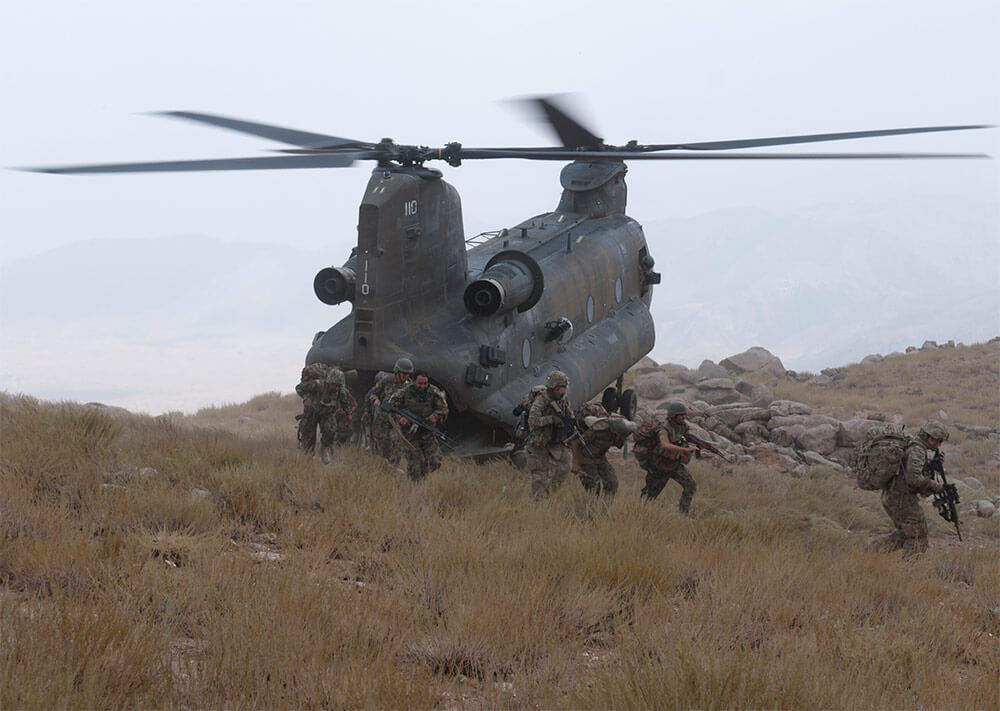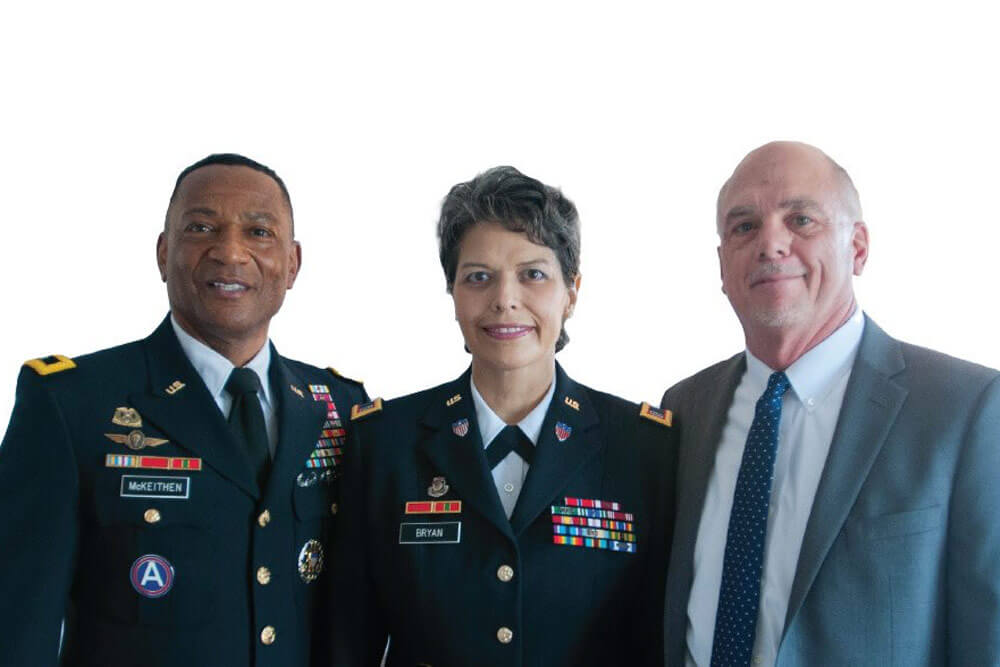U.S. and Malaysian Forces Train in Disaster Relief at Exercise Keris Strike
Picture it: Malaysia, summer, 2018. An earthquake registering 10.0 on the Richter Scale has occurred just off the coast of the country’s main island, causing destruction across the country. The ripple force of the earthquake has caused a deadly tsunami to come crashing in on the shores of the island, destroying parts of the island completely and upheaving the lives of Malaysian citizens.
This horrific event was the scenario for Keris Strike 2018, an annual bilateral exercise focused on disaster relief efforts. Held this past summer at Camp Senawang, Malaysia, and hosted by the Malaysian Armed Forces, the exercise included participants from the Washington Army National Guard, U.S. Army Pacific Command, I Corps, U.S. Army Alaska and the U.S. Army Reserves. The Washington Army National Guard’s 96th Troop Command took the lead in the training exercise that served to improve interoperability and trust between the U.S. and Malaysian armed forces.
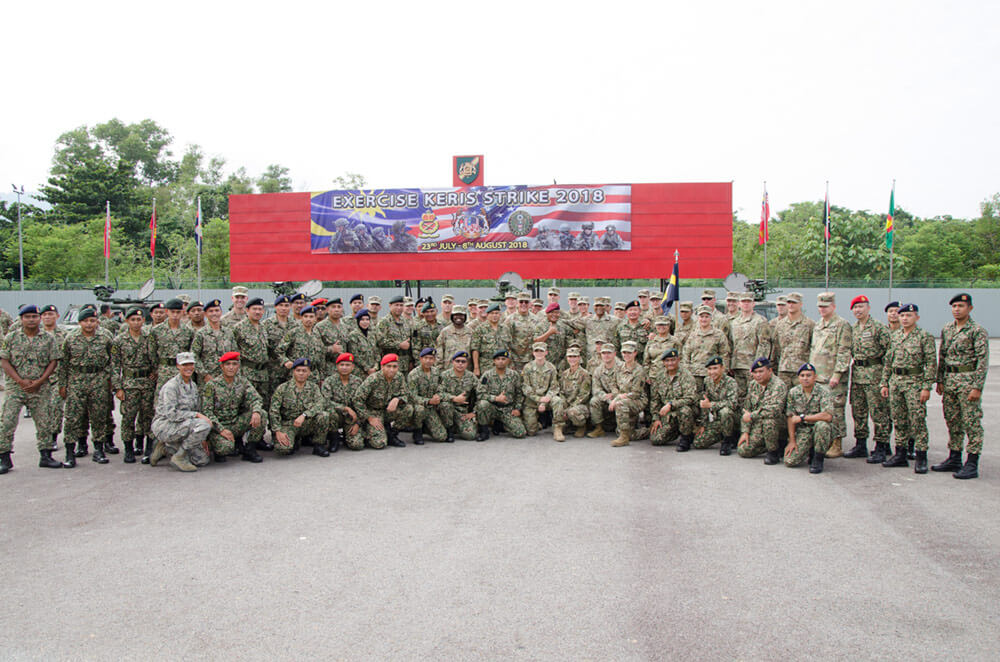
“Our job was to develop a combined solution to assist the population and work on the recovery aspect of the disaster so [the people of the country] could get back on their feet,” said COL Anthony Lieggi, commander of the 96th Troop Command.
This year’s Keris Strike included a field training exercise, a command post exercise and several live-fire exercises. The exercise also included a subject matter expert exchange where participants trained on medical aid, criminal investigation and techniques for responding to chemical, biological, radiological and nuclear contaminants.
The exercise is conducted as part of Pacific Pathways, a U.S. Army Pacific-led initiative that sends U.S. Army troops to several countries in the region to train with foreign militaries under an expeditionary-style deployment. Pacific Pathways functions as an ongoing opportunity for Soldiers to practice vital skills and contribute to the building of foreign partner interoperability.
“We’re here to show that we have a joint multinational relationship and that our presence matters in Southeast Asia,” COL Lieggi said.
The two-week-long exercise was considered a success by most, garnering noted praise from members of the participating forces. The members of each force gained insight into the importance of bilateral disaster relief efforts and building relationships.
“It was an incredible experience for all participants,” said MAJ Joel Berkowitz, brigade logistics officer from the 96th Troop Command. “I know we all came out the other side much richer from the experience.”

MAJ Berkowitz went on to note the personal benefits he found from participating in the exercise.
“Being able to learn some of the doctrine and TTP [tactics, techniques and procedures] that go along with this type of mission-set was an eye-opening experience,” he said. “It will equip me for a wide array of future assignments.”
During the exercise, there was an emphasis on blending forces together to foster relationships and create mutual understanding. COL Lieggi noted that when conducting backbriefs at Keris Strike, half of the brief was done by a U.S. officer and the other half was done by a Malaysian officer. In doing so, both forces had to work collaboratively and depend on one another’s skills.
“It forced both entities to really interact together and get to know each other,” explained COL Lieggi. “When you’re working with somebody for that length of time, you get to see their strengths and weaknesses and they get to see yours. Then together, you’ve developed products that are very well done.”
The fast pace of the exercise was challenging for some Soldiers, especially those experiencing an overseas deployment of this type for the first time.
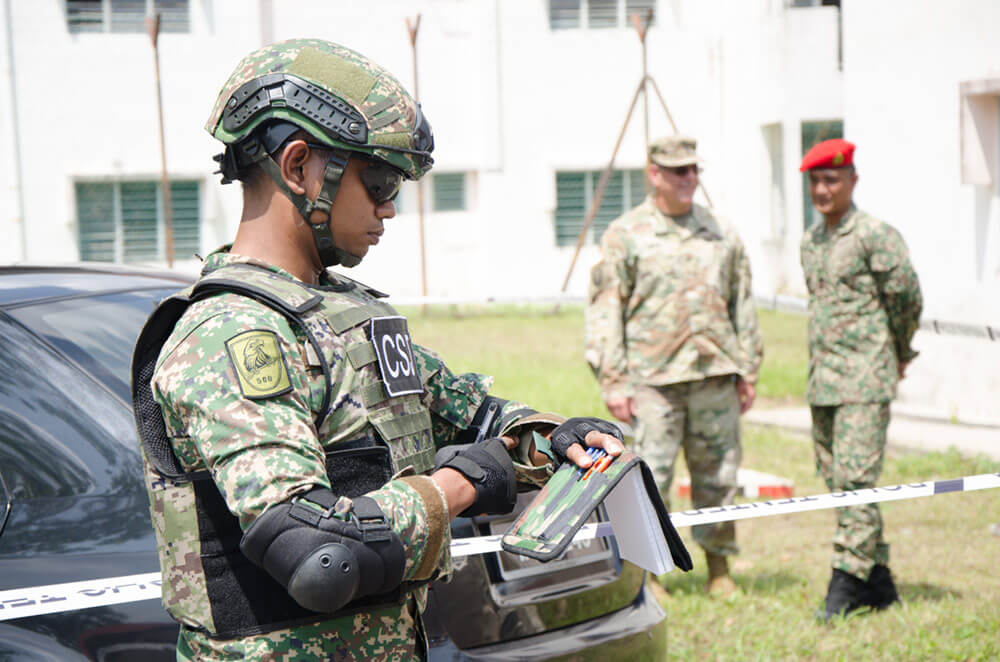
“For some Soldiers, it was their first experience traveling outside of the continental United States,” explained MSG Travis Bassett, operations noncommissioned officer for the 96th Troop Command. “It’s long, uncomfortable and it can be chaotic moving that many people and that much equipment thousands of miles away. When we touched base in Malaysia, there was really no [time] to rest. We had to immediately start the planning phase of the exercise, roll right into the exercise itself, then prepare to come home. That was a tremendous challenge for many Soldiers.”
The extreme Malaysian climate also proved to be a challenging factor for the Washington Soldiers who are mostly accustomed to the much cooler climate of the northwest United States.
“The environmental factors were certainly challenging,” explained MAJ Berkowitz. “Malaysia is a very hot and humid part of the world.”
SFC Omar Trujillo, noncommissioned officer in charge of the 96th Troop Command, commented on the unique mix of would-be obstacles.

“It was challenging fitting everything in the schedule, including travel, a CPX [command post exercise], dealing with networking issues, language barriers, the heat and other obstacles,” he explained. “It was a huge exercise. It was a lot, but it was a success.”
Despite time constraints, communication challenges and intense climates, the Soldiers pushed through, all the while keeping the end goal as their highest priority.
“It was way outside of everyone’s comfort zone,” explained MSG Bassett. “We had to overcome and still accomplish the mission at hand, which was to move through the military decision-making process with our Malaysian counterparts. The mission was a success.”
The success of the exercise showcased the Washington Army National Guard’s flourishing partnership with the Malaysian Armed Forces. As part of the State Partnership Program, Washington has partnered with Malaysia since 2017. The Keris Strike exercise further strengthened the young and budding partnership between the two nations.
“There was already a good foundation [between us] and we were able to build on that,” said MSG Bassett. “I think overall the relationship between the United States, the Washington Army National Guard and the Malaysian forces improved over the couple of weeks that we were there.”
“It was a great opportunity to go in there and show what the Guard can do,” SFC Trujillo said. “It’s important not only for the State, but for the U.S. military in general. Keris Strike was a good opportunity to build on those perceptions and relationships.”
MAJ Berkowitz said he enjoyed the opportunity to work closely with his Malaysian counterparts and learn more about their military.

“My favorite aspect of the exercise was syncing our processes, systems and decision-making methodology with the Malaysians and learning how they conduct business,” he noted.
Several Soldiers noted feeling honored to be a part of the exercise and to receive such a warm welcome from the Malaysian forces.
“I have nothing but great things to say about the Malaysian army and the hospitality they extended to us,” said MAJ Berkowitz. “The extent to which the Malaysians went to ensure that we walked away from that experience with fond memories was incredible.”
Towards the end of the exercise, the Malaysians hosted a cultural day for the participants. The day provided U.S. Soldiers with a look into the Malaysian culture and proved to be one of the highlights of Keris Strike.
“My favorite aspect of the overall exercise was just being in another country and working with a diverse group of individuals from other forces to reach a common goal,” said MSG Bassett. “It was very interesting to see parts of the Malaysian culture come through as [the Malaysian soldiers] demonstrated their capabilities and what they bring to the table.”
“The cultural day with the Malaysians was amazing,” said SFC Trujillo. “It was great to see the camaraderie and the effort they put into the different party events, the music and the food. They had a concert, some of their dancers performed and we got the chance to go out to Kuala Lumpur and Malacca.”

A major goal of Keris Strike was to build and foster relationships between the U.S. and the Malaysian forces. Participants accomplished this goal by working closely together to develop and understand each other as soldiers.
“The greatest lesson was the interoperability between our forces,” said COL Lieggi. “Watching our Soldiers and their soldiers grow together as this exercise started to mature and seeing the sections get refined was very rewarding.”
MSG Bassett highlighted the importance of developing interoperability between forces.
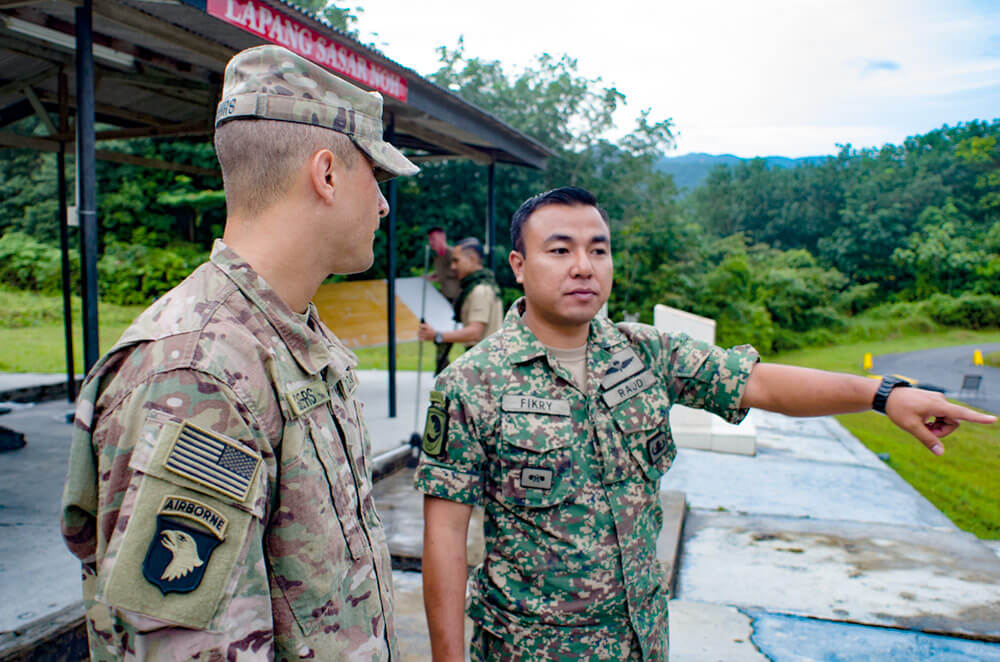
“With as many things that are going on throughout the world today, it’s important to have allies,” explained MSG Bassett. “We need to be able to build relationships and reach a common goal and understanding to get through things as they arise.”
Soldiers walked away from Keris Strike having experienced valuable training and, hence, feeling better prepared for the possible day the United States is called to help Malaysia during a disaster.
“When you’re talking disaster relief and recovery, time is essential,” COL Lieggi said. “There are people whose lives are in trouble and we’re there to get them out of harm’s way.”
“Every time we do rehearsals and practice [in Malaysia], it benefits both militaries,” he continued. “It allows us to do reconnaissance rehearsals and enhance our relationships. If we were to really
be called into something over there, we have a better understanding of them, and they have a better understanding of our capabilities.”
By Staff Writer Tatyana White-Jenkins
